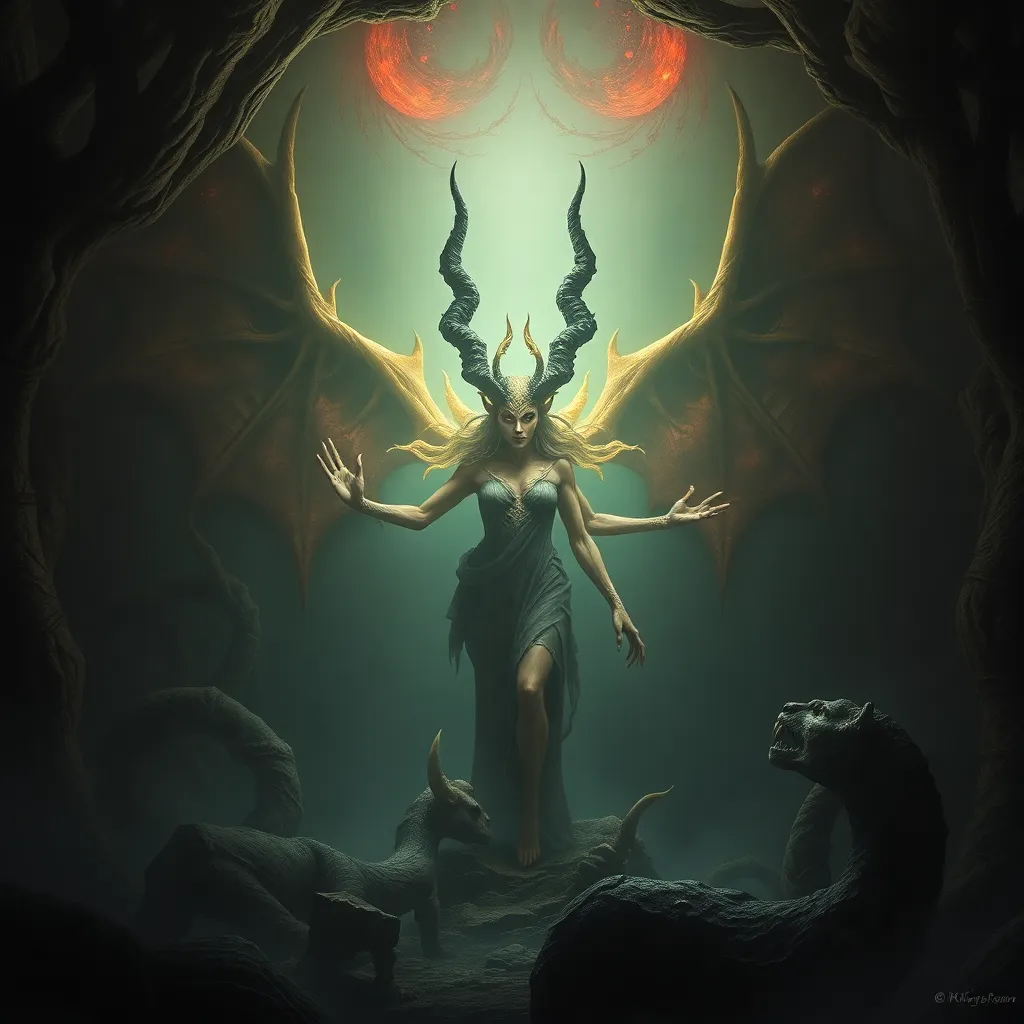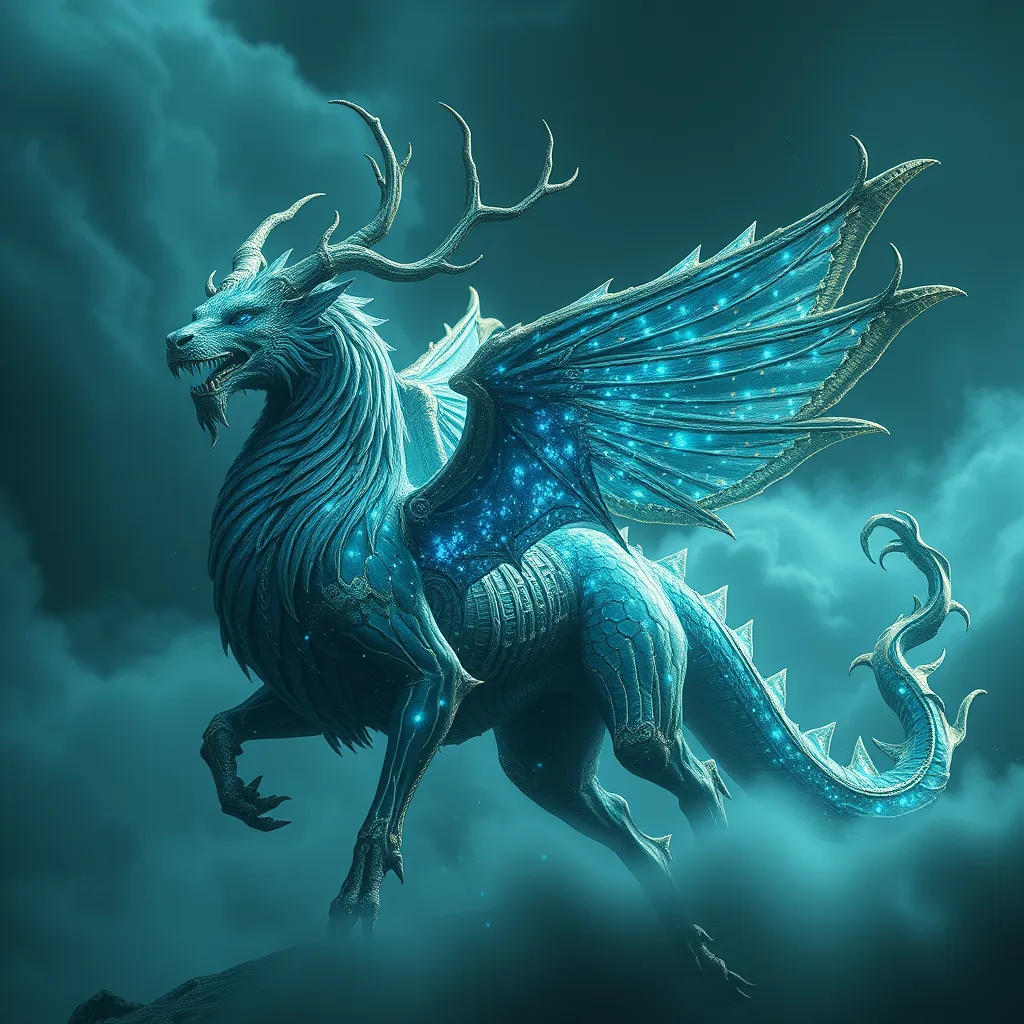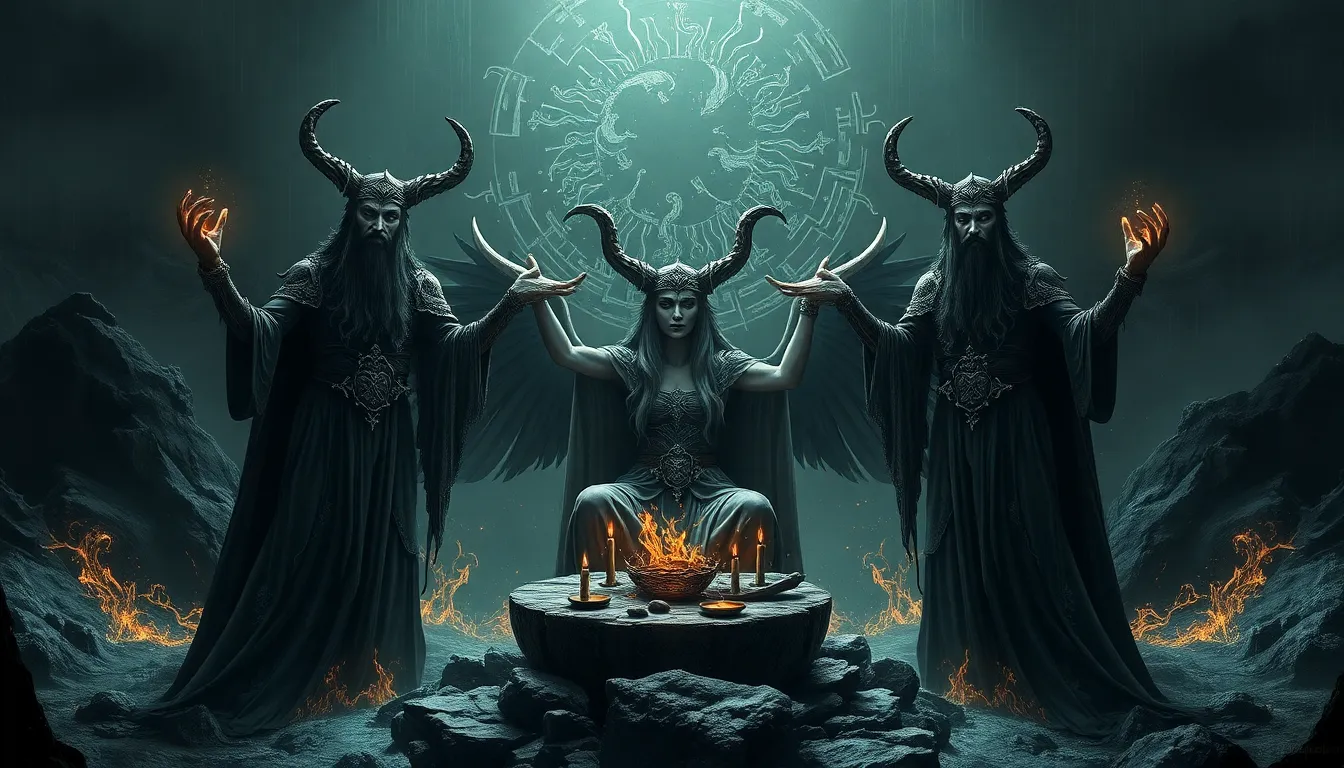Empusa and the Underworld: A Roman Perspective on the Demon’s Nature and Powers
I. Introduction
Empusa, an enigmatic figure from ancient mythology, has captivated the imaginations of scholars and enthusiasts alike. In Roman mythology, she is often portrayed as a demon with a dual nature, embodying both beauty and terror. Understanding Empusa within the context of the Underworld not only reveals the complexities of her character but also highlights the Roman perspective on demons and the supernatural. This article aims to explore Empusa’s nature, powers, and her role within the rich tapestry of Roman mythology.
II. Historical Context of Empusa
A. Origins of Empusa in Greek mythology
Empusa’s roots can be traced back to Greek mythology, where she is depicted as a shape-shifting demon, often associated with the goddess Hecate. She was known to prey upon young men, seducing them before revealing her monstrous form. This duality of beauty and horror made her a compelling figure in Greek lore.
B. Adoption and adaptation of Empusa in Roman culture
As the Romans encountered Greek mythology, many figures were adopted and adapted to fit their cultural narrative. Empusa was no exception. In Roman culture, she was often integrated into the broader pantheon of demons, taking on new characteristics and stories that resonated with Roman beliefs and societal norms.
C. Comparison of Greek and Roman interpretations
While the Greek version of Empusa emphasized her role as a seductress and a harbinger of death, the Roman interpretation often focused more on her abilities as a demon that could shape reality and influence the living. This shift reflects broader Roman themes of control, power, and the supernatural’s role in everyday life.
III. Empusa’s Nature as a Demon
A. Description of Empusa’s physical characteristics
Empusa is frequently described as having a terrifying and alluring appearance. In various texts, she is depicted with:
- Long flowing hair that can change color.
- Eyes that glow with an unnatural light.
- A body that can shift between human and monstrous forms.
B. Symbolism associated with Empusa
Empusa embodies several symbolic meanings within Roman culture. She represents:
- The fear of death and the unknown.
- The dangers of unchecked desire and seduction.
- The duality of beauty and horror in the human experience.
C. Role of gender and sexuality in Empusa’s portrayal
Empusa’s character is deeply intertwined with themes of gender and sexuality. As a female demon, her powers of seduction highlight societal fears surrounding female sexuality. This portrayal can be seen as a reflection of Roman attitudes toward women and their roles within society.
IV. Empusa’s Powers in Roman Beliefs
A. Abilities attributed to Empusa (shapeshifting, seduction)
Empusa’s most notable powers include:
- Shapeshifting: The ability to transform into different forms, often alluring and deceptive.
- Seduction: Preying on the desires of men, leading them into dangerous situations.
B. Relationship between Empusa and the souls of the dead
In Roman beliefs, Empusa was thought to have a particular connection to the souls of the deceased. She was believed to:
- Guide souls to the Underworld.
- Manipulate the energy and emotions of the living, especially in moments of grief.
C. Influence of Empusa on dreams and nightmares
Empusa was also associated with dreams, often manifesting as a figure in nightmares. Her presence in dreams was interpreted as a warning or a sign of impending danger, reflecting the Romans’ belief in the interconnectedness of dreams and the spiritual realm.
V. Empusa in Roman Literature and Art
A. Depictions of Empusa in classical texts
Empusa appears in several classical texts, including works by authors such as Apuleius and Ovid. These depictions often emphasize her seductive nature and her role as a figure of dread.
B. Artistic representations of Empusa in Roman sculpture and painting
In Roman art, Empusa is depicted in various forms, often blending human features with monstrous traits to convey her dual nature. Artists used her image to evoke both beauty and fear, reflecting the complexities of her character.
C. Analysis of how these works reflect Roman attitudes toward demons
The portrayal of Empusa in literature and art reveals much about Roman attitudes toward demons. She is seen as both a threat and a source of fascination, illustrating the Romans’ struggle to understand and control the supernatural forces surrounding them.
VI. The Underworld in Roman Mythology
A. Overview of the Roman concept of the Underworld
The Roman Underworld, known as Orcus or Hades, was a complex realm inhabited by the souls of the deceased. It was divided into various sections, each serving a different purpose for the souls that resided there.
B. Role of demons and spirits in the Underworld
Demons and spirits played a crucial role in the Underworld, serving as guides, guardians, and tormentors. They were believed to influence the fate of souls, determining their journey in the afterlife.
C. Empusa’s specific place within this supernatural hierarchy
Empusa occupied a unique position within the Underworld. As a shape-shifting demon, she was both a seducer and a guide, representing the fear and allure of the unknown that awaited souls after death.
VII. The Cultural Impact of Empusa
A. Influence on Roman folklore and superstitions
Empusa’s influence extended beyond mythology into Roman folklore and superstitions. She became a cautionary figure, warning against the dangers of seduction and the supernatural.
B. Empusa’s legacy in later interpretations of demons
The legacy of Empusa can be seen in later interpretations of demons in literature and art. Her character has influenced the portrayal of female demons throughout history, often embodying the tension between beauty and danger.
C. Modern representations of Empusa and her relevance today
Today, Empusa continues to be relevant in popular culture, appearing in modern literature, films, and art. Her character serves as a reminder of the enduring fascination with the supernatural and the complexities of female representation in mythology.
VIII. Conclusion
In summary, Empusa holds a significant place in Roman mythology, embodying themes of seduction, death, and the supernatural. Understanding her nature and powers provides insight into Roman beliefs about demons and the Underworld. As we reflect on the importance of such figures in cultural contexts, it becomes clear that the study of Empusa and related mythological figures offers rich opportunities for further research and exploration.



